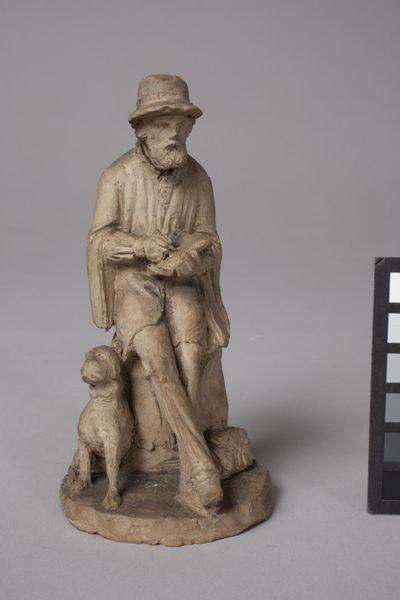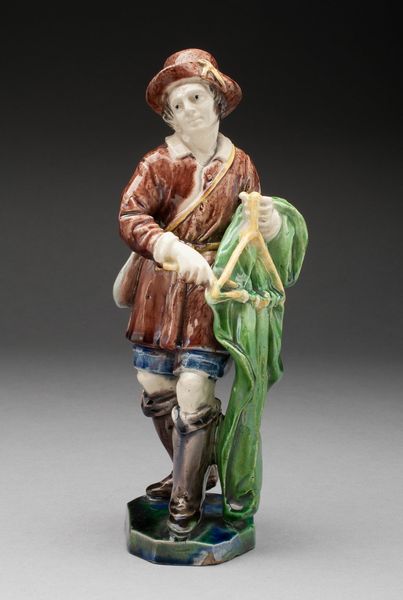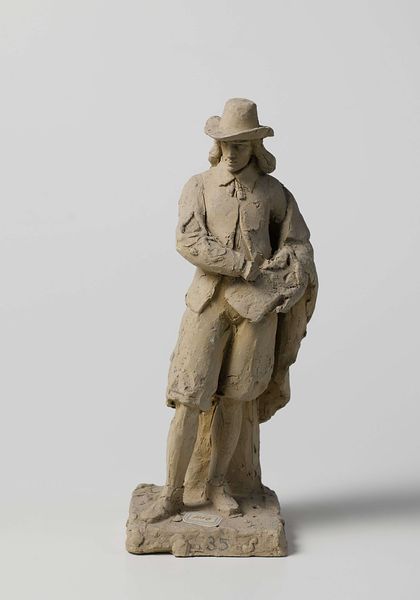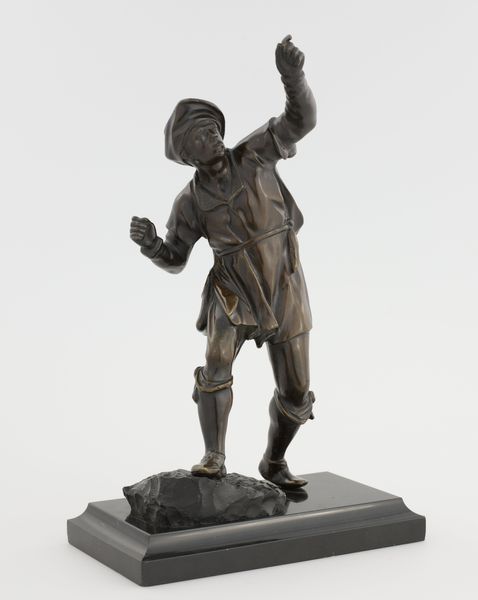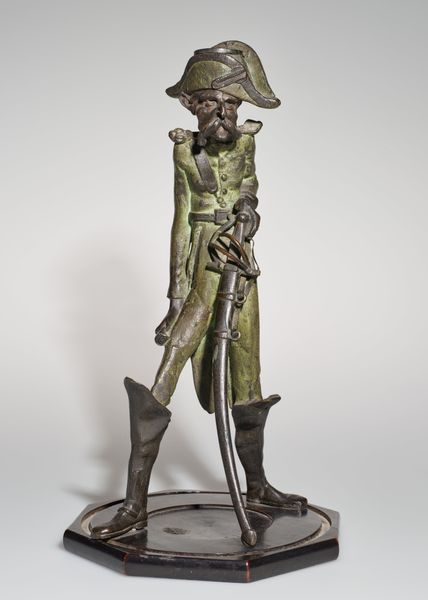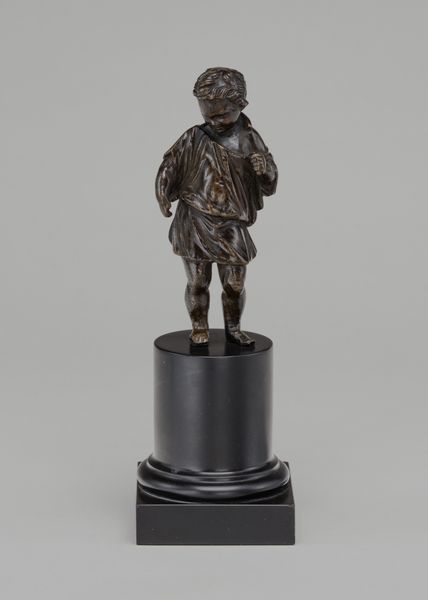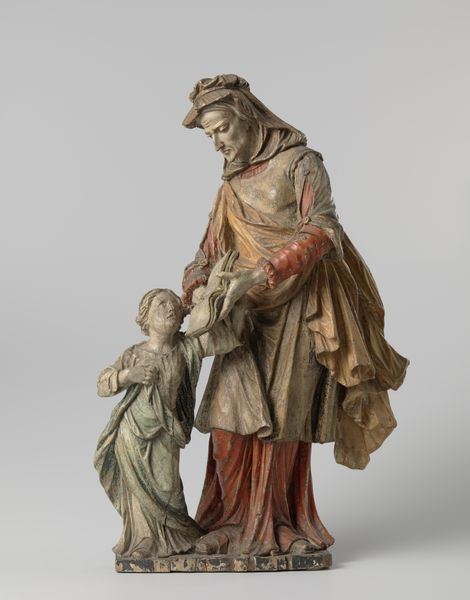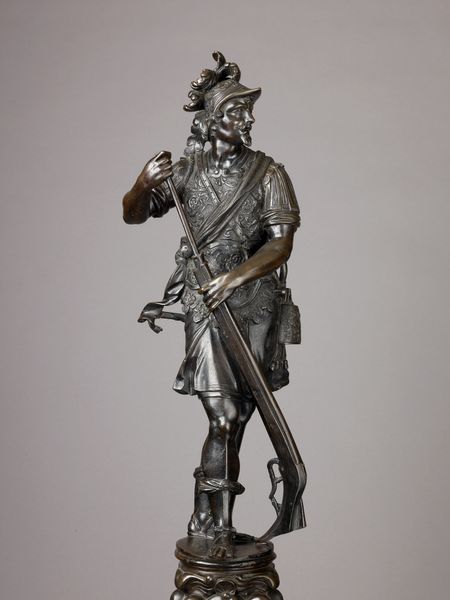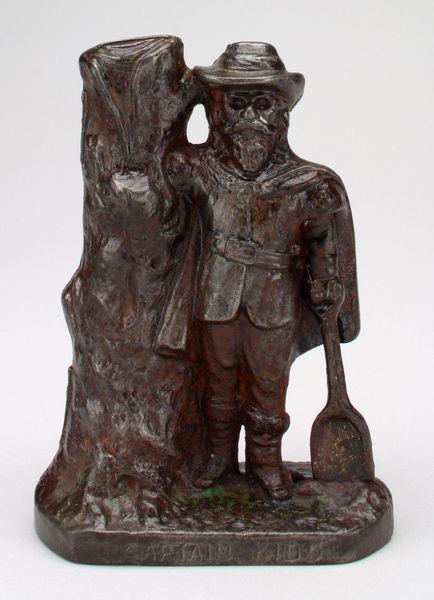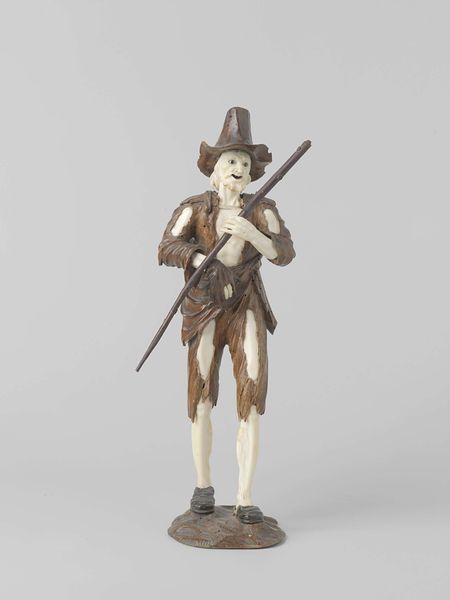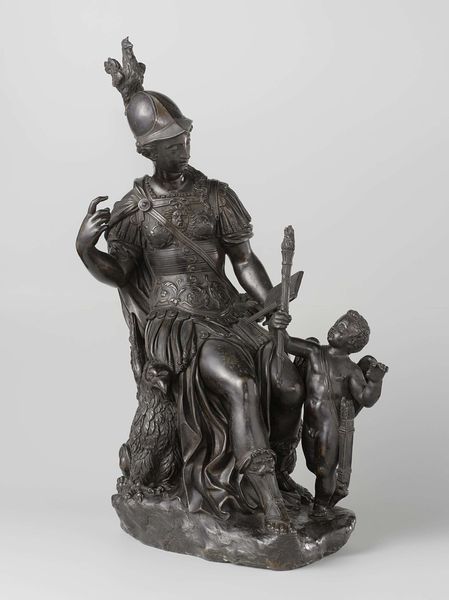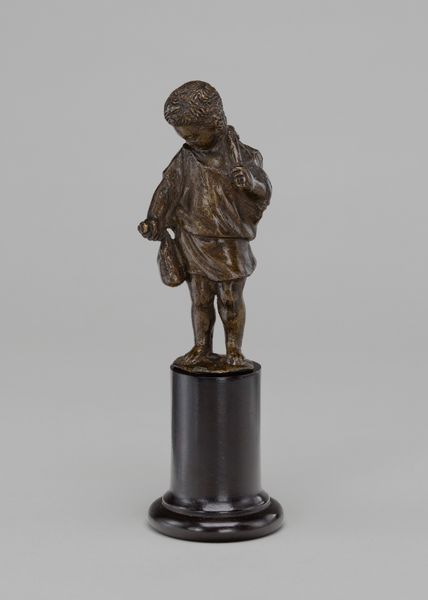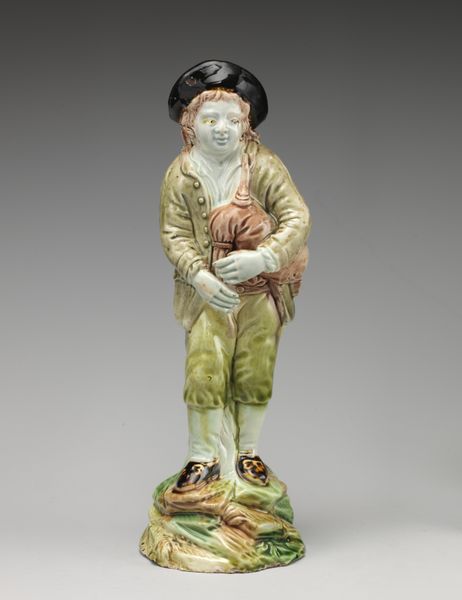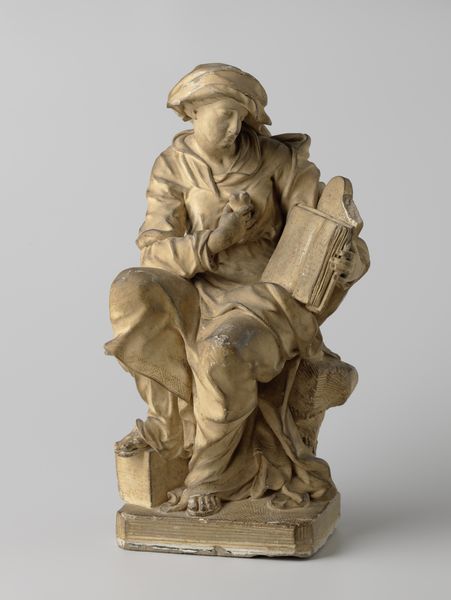
sculpture, wood
#
portrait
#
narrative-art
#
baroque
#
figuration
#
sculpture
#
wood
#
genre-painting
Dimensions: height 30.5 cm, width 17.0 cm, depth 8.5 cm, height 26.5 cm
Copyright: Rijks Museum: Open Domain
Ambrosius van Swol carved this limewood sculpture of a rat poison seller around the mid-17th century. The figure of the rat poison seller, accompanied by a young assistant, offers us a glimpse into the everyday life and public health concerns of the Dutch Golden Age. The sculpture’s intricate details – the man’s fur-trimmed coat and the caged rats – create a vivid image of the itinerant salesman. The presence of rats points to the unsanitary conditions prevalent in urban centers at that time, and the seller represents society’s attempt to control disease. It is interesting to note the institutional responses of the era to disease, as well as the economic activities that emerged in response to those fears. To gain further insight, one might examine period public health records, as well as other images of street vendors. These historical sources can enrich our understanding of the artwork, showing how art is rooted in its time, reflecting specific social conditions and cultural anxieties.
Comments
No comments
Be the first to comment and join the conversation on the ultimate creative platform.
